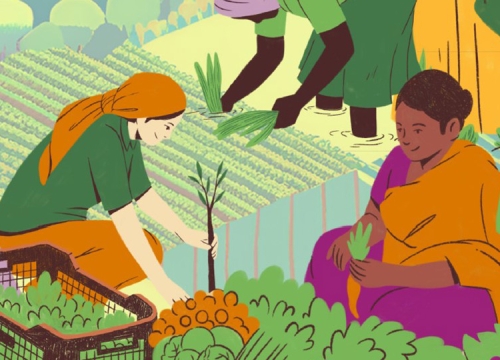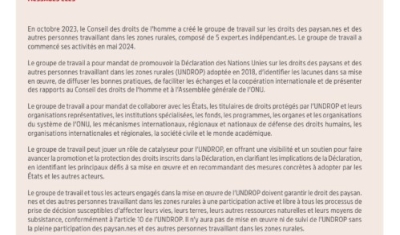The Role of Peasant Women: The Function of the UNDROP in the Realization of the Right to Food
Event
Guided by the spirit of the 8th March, the International Women's Day, this side-event gives visibility to working women and the struggle to claim effective equality of their rights, highlighting the path of depatriarchalization, and the need to advance in the implementation of the UN Declaration on the Rights of Peasants and Other People Working in Rural Areas (UNDROP).
Disproportionately, those who suffer from hunger and malnutrition are landless or own small pieces of land, with women and girls living in rural areas being disproportionately impacted, without access to productive resources and in many cases are without access to basic services.
There is an imbalance in the relationship between women in rural areas, land and the realization of the right to food, paradoxically, they are the ones who contribute most to the process of agricultural production and food security, which requires accelerating and increasing discussion, reflection and decision-making by governments, international organizations, multilateral financing institutions, academia and organized civil society.
Herein lies the importance of process of implementation of UNDROP, adopted by the General Assembly in December 2018 (A/RES/73/165). A process that was strengthened with the creation of the Working Group (A/RES/HRC/54/9) on the rights of peasants and other people working in rural areas.
In the face of the pressures and imbalances of economic, cultural and social power, we want to reflect on the role and decisive contribution of rural women, including girls, in the strategic promotion of agricultural and rural development, the improvement of food security and sovereignty in and for the eradication of rural poverty.







